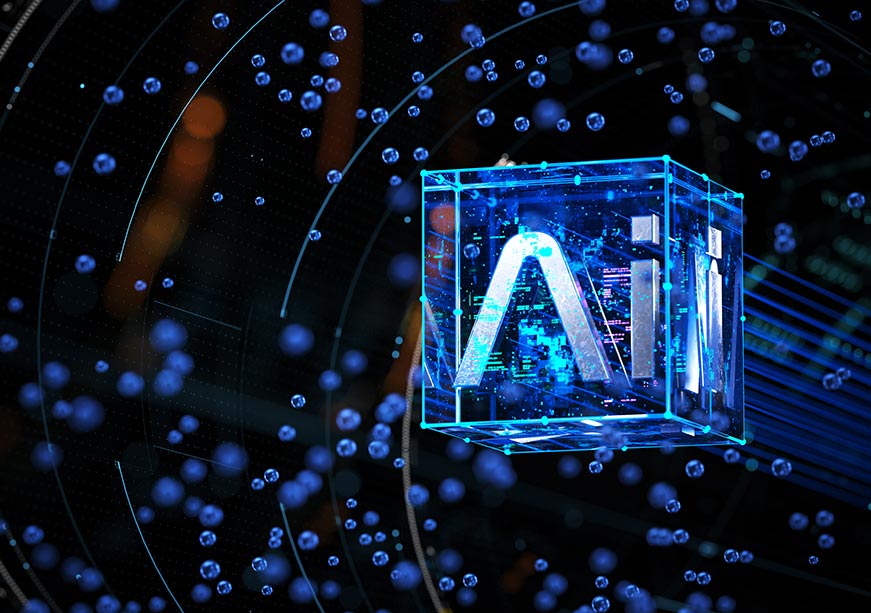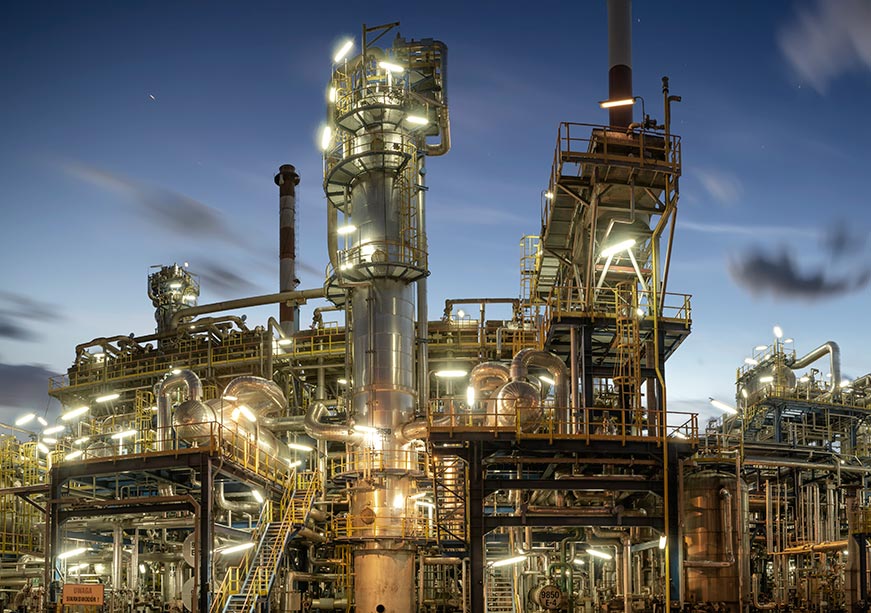-
CENTRES
Progammes & Centres
Location
With AI automating complex services, businesses face a sharp paradigm shift. Software is no longer just a tool, but the driving force of enterprise operations

Image Source: Getty
Human effort has traditionally driven the adoption of technology services—programmers coding algorithms and business logic into executable programmes, analysts managing data, system integrators deploying and maintaining infrastructure, and consultants optimising enterprise workflows. However, with the advent of artificial intelligence (AI), a fundamental shift is underway: human-led services are becoming AI-led software. Instead of hiring large teams of human specialists, businesses will increasingly incorporate AI-powered tools and platforms that automate complex tasks once thought impervious to automation and digitalisation.
Instead of hiring large teams of human specialists, businesses will increasingly incorporate AI-powered tools and platforms that automate complex tasks once thought impervious to automation and digitalisation.
The AI-driven shift is compelling enterprises to reimagine fundamental work at an unprecedented pace. It raises several critical questions about what happens to human labour when AI replaces labour-intensive services, how AI-driven automation will redefine the relationship between enterprises and the software they adopt, and what new opportunities will emerge in a paradigm where enterprise-grade AI takes centre stage.
The traditional Software-as-a-Service (SaaS) model disrupted enterprise Information Technology (IT) by replacing expensive, on-premise software solutions with cloud-based applications. Databases were maintained by the SaaS providers remotely, and the per-seat license model evolved rapidly to annuity payments and the rise of Annualised Recurring Revenue (ARR). SaaS has dominated the technology world for the better part of two decades. Today, AI is pushing the envelope by turning services built to be used by humans as ‘self-serve’ utilities into automatically-running software solutions that execute autonomously—a paradigm shift the venture capital world, in particular, has termed ‘Services as Software’
AI tools like Harvey AI are transforming the legal and compliance sector by analysing case law and generating legal briefs, essentially replacing human research assistants.
The shift is already conspicuous across industries. AI tools like Harvey AI are transforming the legal and compliance sector by analysing case law and generating legal briefs, essentially replacing human research assistants. The customer support ecosystem that once required large human teams in call centres now handles significant query volumes daily with AI chatbots and virtual agents. Tools like OpenAI's Code Interpreter catalyse industries operating on data analysis and business intelligence by incorporating AI-driven analytics that replace manual data wrangling. Unlike traditional SaaS, which assists human workers, these AI-driven tools replace labour-intensive processes entirely and generate outcomes with minimal human interventions. ‘Services as Software’ therefore eliminates the human + SaaS unit that serves outcomes and replaces this unit with a full-stack AI-led automation that delivers the same outcomes.
Several tailwinds have converged globally to accelerate this shift:
As a result of these aforementioned factors, there has been a global surge in AI-first companies building products and trained models that automate significant components of services-based businesses, and replace traditional approaches to work entirely.
Businesses are actively adopting AI-driven tools to reduce operational expenses and vastly improve efficiency, particularly in high-cost service functions that usually incorporate a significant human labour component.
The AI-driven shift brings into question the traditional notion of availing an ‘expert service’. Software development,legal, and financial services are all coveted industries where workers are considered ‘experts’ delivering specialised services. The human role will undergo tremendous redefinition and will require calibrated re-skilling.
Historically, enterprises purchased software systems that human professionals then produced their work on top of, with these professionals being the primary drivers of work. These software systems became ‘Systems of Record’ (SOR), with enterprise knowledge and memory encapsulated within them, and business continuity preserved via their persistence. With AI now capable of directly engaging with these SORs, human work is becoming secondary, and this shift is fundamentally re-engineering how businesses consume technology.
Businesses will rely on AI-driven quality assurance and control instead of outsourcing software testing, Quality Assurance, and Quality Control.
Businesses won't simply replace SaaS with AI-powered tools; they will build the company's processes and systems around these new systems. Instead of hiring marketing agencies, companies will use AI to generate dynamic marketing and advertising campaigns. Businesses will rely on AI-driven quality assurance and control instead of outsourcing software testing, Quality Assurance, and Quality Control. Instead of manual IT support, enterprises will deploy AI-driven monitoring and cybersecurity agents. AI agents will run Human Resource processes and travel bookings. Every business computer will host dedicated AI agents to monitor human productivity and run real-time coordination of enterprise resources, and calendars.
Despite AI's rapid rise and the potential churn in enterprise workflows, processes, and onboarding of labour, human contribution will continue to remain essential in several key areas:
AI will reshape roles instead of replacing human expertise entirely, just as prior technologies like desktop computing, cloud, mobile, and app-led SaaS did. Human-AI collaboration will become the new normal.
AI will not just assist service-based industries, but also replace traditional workflows with automated alternatives.
The shift from labour-intensive services to AI-driven software is already underway with profound implications. AI will not just assist service-based industries, but also replace traditional workflows with automated alternatives. However, rather than eliminating human roles, AI will redefine them, and possibly adjunct them. The most successful businesses will combine AI's efficiency with human judgement, creativity, and oversight.
As AI becomes the core of enterprise technology, businesses that embrace automation will gain a significant competitive edge. The question is no longer if services will become software but how quickly industries will adapt—and what new opportunities will emerge. The companies that lead this transformation will define the next era of global technology—one in which AI and human expertise work in tandem to push the boundaries of innovation.
Nisha Holla is a Visiting Fellow at the Observer Research Foundation
The views expressed above belong to the author(s). ORF research and analyses now available on Telegram! Click here to access our curated content — blogs, longforms and interviews.

Nisha Holla is Visiting Fellow at ORF where she writes on ideas and shifts at the intersection of technology economics and policy. She tracks the ...
Read More +
